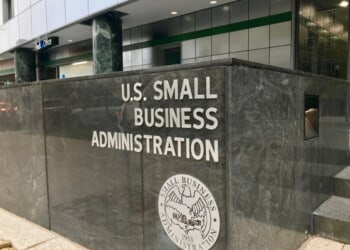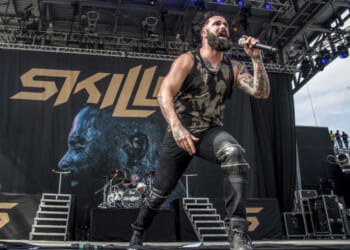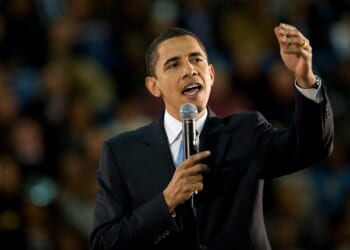When Elon Musk started bellyaching about the “One Big Beautiful Bill” he revealed why his influence on the Trump administration was destined to be short-lived. Like most billionaires, he is accustomed to getting what he wants when and how he wants it. He has no patience with the excruciating political process and the necessary compromises that must be endured to produce a piece of legislation like the bill Trump signed into law on July 4. In this regard he has much in common with the late Ross Perot, whose destructive foray into national politics proved so disastrous for the Republican Party and the nation at large.
Elon Musk’s proposed “America Party” doesn’t need to win any elections to have a profound effect on the balance of power in Washington.
Like Perot, Musk imagines himself as the savior who will free us from a profligate Washington establishment in which the two major parties often work together in order to maintain their monopoly on power. On July 5, Musk expressed this delusion on X as follows: “When it comes to bankrupting our country with waste & graft, we live in a one-party system, not a democracy.” Also like Perot, his “solution” involves forming a new political party that will offer the voters “genuine” choice beyond the two dominant parties. Perot founded the Reform Party and Musk insists he is deadly serious about launching the America Party.
Musk has other characteristics in common with Perot, including unpredictable and capricious behavior. Perot for example, abruptly dropped out of the 1992 presidential campaign in July only to return to the race in October. He also accused then-President Bush of plotting to disrupt his daughters’ wedding. As for Musk, he is reported to have “aggressively body-checked” Treasury Secretary Scott Bessent in the White House during an argument. Such antics, combined with his decision to found a new political party, worries his investors. James Fishback, CEO of the investment firm Azoria, wrote to the Chair of Tesla’s Board:
I am writing to inform you that Azoria is postponing next week’s public listing of the Azoria Tesla Convexity ETF. Our decision comes in direct response to Mr. Musk’s announcement that he is launching a new national political party. This creates a conflict with his full-time responsibilities as CEO of Tesla. It diverts his focus and energy away from Tesla’s employees and shareholders … I encourage the Board to meet immediately and ask Elon to clarify his political ambitions and evaluate whether they are compatible with his full-time obligations to Tesla as CEO.
This won’t be the last such missive the Tesla Board receives. It’s unlikely that the company’s shareholders were happy to see the decline in Tesla’s stock value during Musk’s brief tenure in President Trump’s administration. It’s even less likely that they will welcome his involvement in a rump political party whose sole purpose will be to unseat Republicans who passed a budget he didn’t like. His claim that he is on a righteous crusade against the “uniparty” is self-serving BS. As Eric Metaxas points out on X, “We’re now seeing Elon Musk’s CHARACTER. Brilliant. Also childish & willful. And therefore dangerous & destructive.”
If Musk follows through on this America Party nonsense, it will be destructive — to the GOP. As Ross Perot’s two presidential campaigns demonstrated, third party candidates aren’t very good at winning. They are, however, excellent spoilers. In 1992, Perot received 18.9 percent of the vote, George H. W. Bush won 37.5 percent and Bill Clinton got 43.6 percent. If only half of Perot’s votes would have, in his absence from the ballot, gone to Bush — he would probably have been reelected. The conventional wisdom rejects this out of hand, and guilt-ridden Perot voters are still in denial. But the American Enterprise Institute offers this:
Bush led handily in polls until Perot declared his candidacy (not shown), then saw his standing ebb. But Bush voters did not go to Clinton. Rather, they went to Perot, at least at first. Clinton was mired at around 27 percent of the vote throughout the spring and summer, at least until Perot suspended his campaign on the eve of the Democratic convention … Tactically, Perot forced Bush into a two-front war at a time where he needed to be hammering away at a badly wounded Clinton campaign. He also elevated issues that were unfavorable for the Republican, most notably the deficit.
But it isn’t necessary to return to the last century to see how third parties can have a real effect on the Electoral College outcome. It’s entirely possible that the winner of the 2020 election was less about election skulduggery than the unusually significant performance of the Libertarian candidate, Jo Jorgensen. She not only outperformed most Libertarian presidential candidates, she garnered more than enough votes in each of the battleground states to account for President Trump’s narrow losses. In Georgia, for example, she garnered 62,000 votes. If half of those votes had gone to Trump, he would have won the Peach State.
This obviously suggests that Elon Musk’s proposed “America Party” doesn’t need to win any elections to have a profound effect on the balance of power in Washington. The Republicans control the House of Representatives by such a narrow majority that any third party can peel off a few voters in key districts to hand power back to the Democrats. That means a third impeachment and only God knows what other antics. Why would Musk want this? Perot probably ran largely because of a personal grudge against the Bush family. In Musk’s case, it may be the mere failure to get what he wanted when and how he wanted it.
READ MORE from David Catron:







![Florida Man With Violent History Arrested for Choking a Cop [WATCH]](https://www.right2024.com/wp-content/uploads/2025/06/Eleven-Stabbed-in-Attack-at-Salem-Homeless-Shelter-Across-From-350x250.jpg)







